TWF 2022 – A huge success! Back to its pre-pandemic glory!
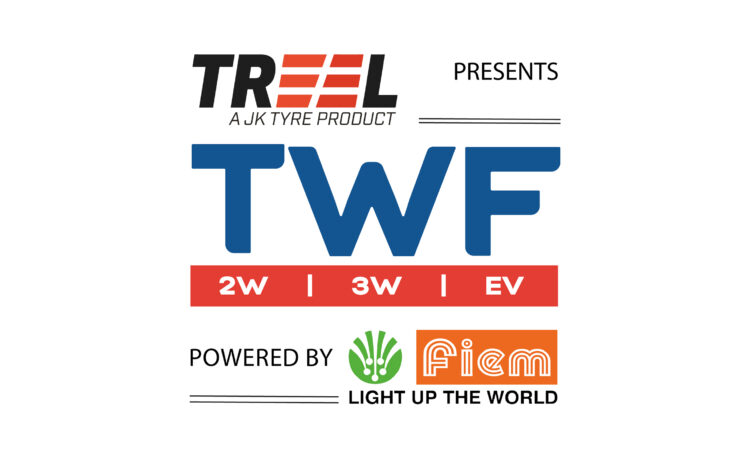
The premium 2W, 3W & EV Industry (TWF) conference held in New Delhi brought together 400+ senior level executives from 200+ brands as attendees, 60 industry experts as speakers and over 35 partners.
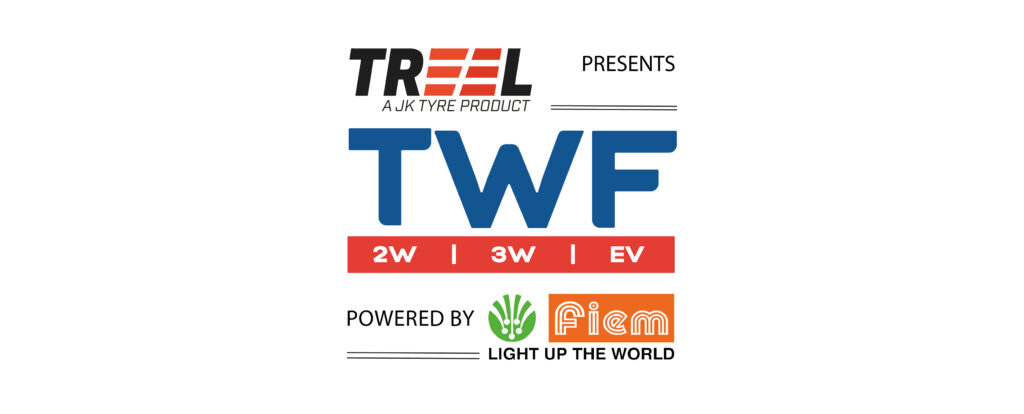
Two Wheeler, Three Wheeler & EV Forum (TWF) is known as the calendar event of the Indian 2W, 3W & EV industry. The 4th Edition of TWF took place at The Eros Hotel, Nehru Place, New Delhi.
TWF has been labelled as “NOT TO MISS event of the 2W, 3W & EV sector.” And has a huge presence from across the 2W, 3W & EV industry including OEMs, End Users, Suppliers, Dealers, Consultants, Govt., Associations and Startups.
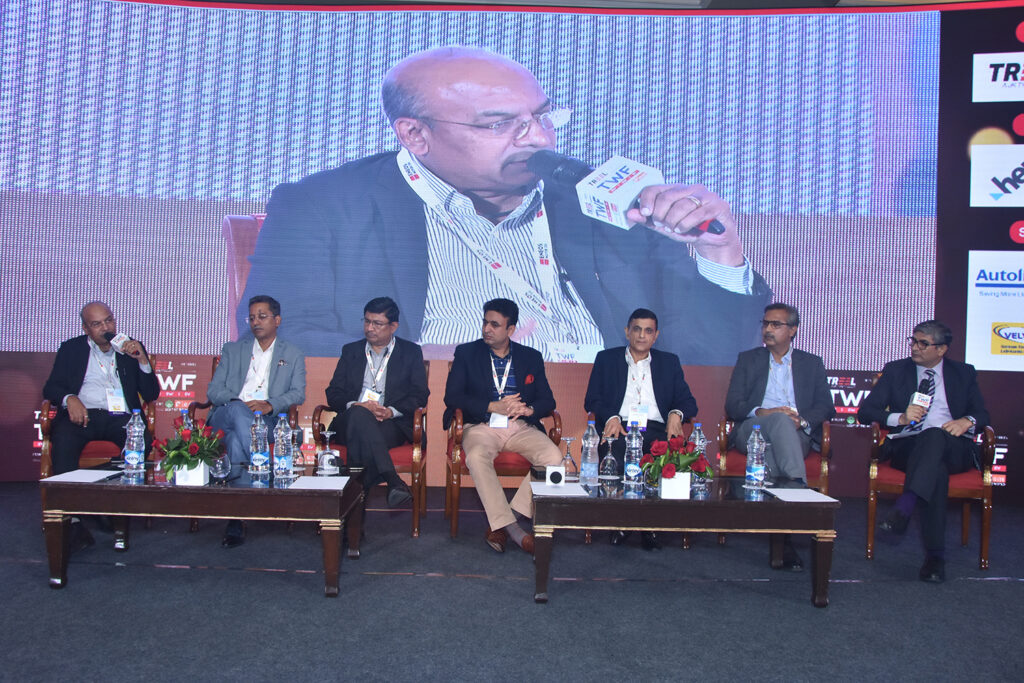
All the conference sessions in TWF are specially curated to present an analysis & clear outlook of the 2W, 3W & EV Industry for the near to medium term.
TWF had again taken a dual approach this year, with room 1 offering a broad narrative on the Market transitions & room 2 focussing on Electric Vehicles. Participants attended the track that they found most suitable to their interest area.
The crowd sourced agenda was comprehensive and ran over one power packed day with sessions focusing on: CXO Panels on Indian 2W Industry and Future of Electric Vehicles in India, The Digital Revolution, Battery Safety & Regulation, Supply chain & localisation, Battery Technology & Swapping, Future of last mile delivery, Charging Infrastructure and some insightful presentations.
Mr. Kaushik Madhavan, Mobility Business Unit, Frost & Sullivan India kick started proceedings with an inaugural presentation on Transformational Global Trends Changing Two- Wheeler Mobility.
Sh. Vinod Kumar Yadav Ji, Deputy Commissioner, GNCTD gave a keynote speech on major breakthroughs in model shifts for transportation in the country and the boons for shifting to electric vehicles. He also spoke about pollution being the main challenge in the country since 1983 and how it is necessary to shift from ICE based engines to EV’s to tackle it.
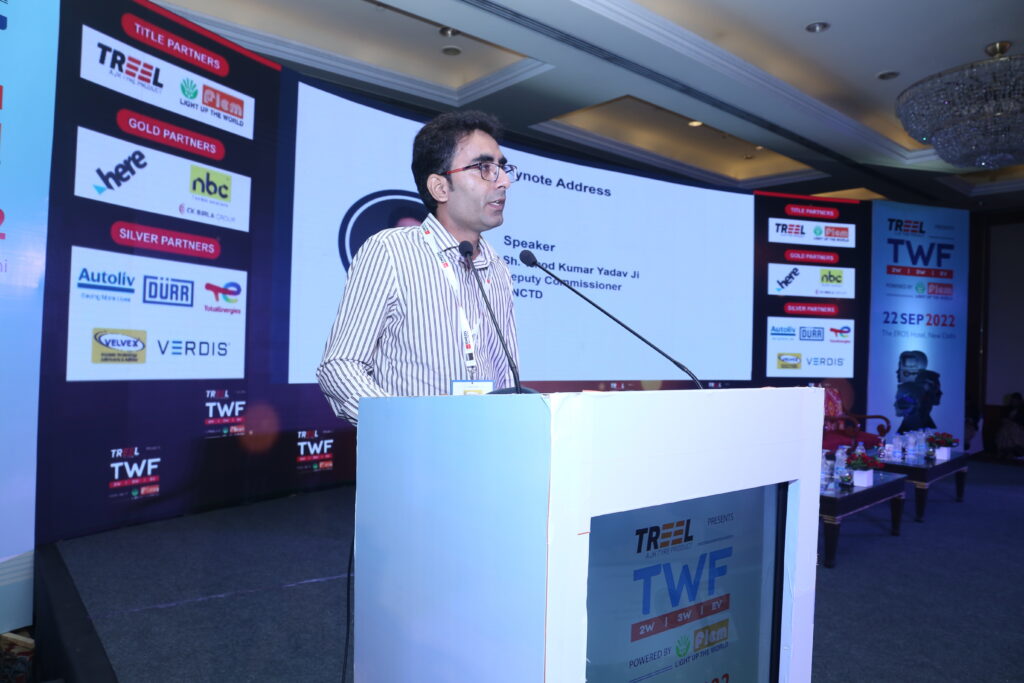
Our CXO Panel on Indian 2W Industry: Carving the Niche was moderated by Mr. Hemal Thakkar, Director Transport, Logistics & Mobility, CRISIL Ltd. The panel discussed how the 2W industry has been through tough times over the last 2.5- 3 years, there have been green shoots with respect to electrification but apart from that 2W Industry has been through a very tough phase and there has been an economic slowdown since 2020. The panel of experts added to how they have seen this phase, to which Mr. Bipul Chandra said “In these tough times the bottom of the pyramid is impacted but the top of the pyramid is narrow. Also, because of small numbers our percentage growth seems very very high and we have grown better than other sectors and previous years but the numbers are still low.”
Mr. Naveen Munjal added “The last 2 years have seen immense amounts of momentum. We have been in this space for 15 years and I always knew the market is going to electrify at some point & we will move into clean energy and zero emissions just didn’t know how long and when. I am glad to see that in the last 1.5 years the amount of momentum we have seen is far greater than that we have seen in 10 years prior to that.”
We had another CXO Panel on Future of Electric Vehicles in India which was moderated by Mr. Kaushik Madhavan, Mobility Business Unit, Frost & Sullivan India. The panel discussed how electric vehicles specially 2W & 3W segments are going to redefine the growth trajectory in India and what role are stakeholders going to play in the electrification ecosystem. Another topic they had an in depth discussion on was how financing electric 2W has evolved in India and is this the right time for micro financing or regional financing in India?
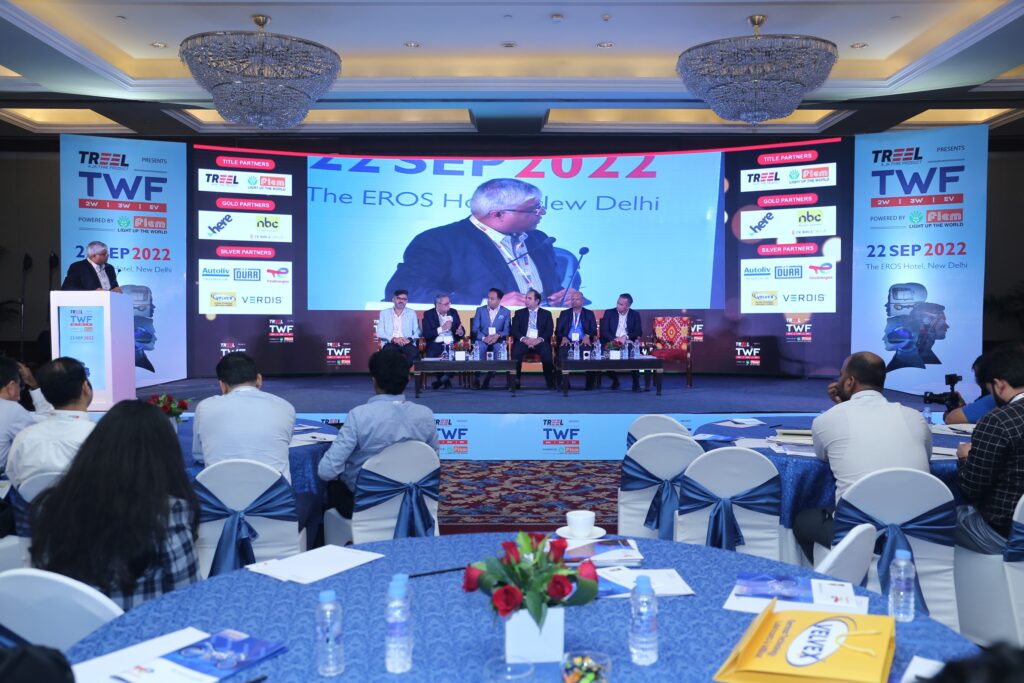
Mr. Srinivas Kantheti, Managing Director, Bike Bazaar said “If 100 two wheelers are sold in India only 45 two wheelers get financed even in ICE vehicles. On the other hand if we see a comparison to the car industry it’s almost 90%. Two-wheeler financing in itself is a bit of a challenge as traditionally the banks and bigger nbfcs have been reluctant to finance them. Once the entire financing system changes from an ownership to a ridership model things will become easier.”
The next panel on Supply Chain and localisation was moderated by Mr. Bhupesh Rathore, National Head-Corporate & Government Advisory, YES BANK and threw light on global challenges and surge in demand post covid era which gave rise to price and created chip shortages. He spoke about how government efforts like the Atmanirbhar plan & the need for made in India products are creating a greater value over the supply chain. They discussed how India has emerged as the second most sought after manufacturing destination across the world indicating the growing interest shown by manufacturers in India as a preferred manufacturing hub over other countries including the U.S.
The Battery Safety and regulation panel moderated by Mr. Ashim Sharma, Partner & Group Head, Nomura Research Institute (NRI) Consulting focused on something that is very topical nowadays- Battery fires & regulations around it and the many ways in which this problem can be solved!! They discussed the many ways in which this problem can be tackled like doing things within the cell putting retardants, using separators that stops the ion exchange or looking at measures around the BMS which tries to isolate cells which are not operating as desired.
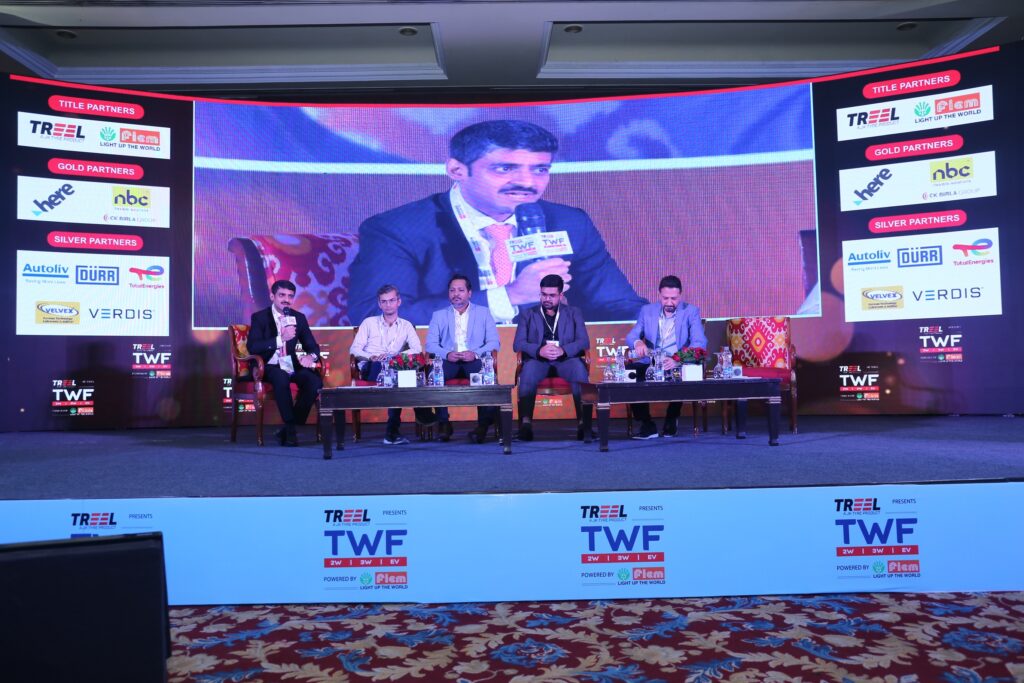
While moderating the session, Ashim asked Mr. Amitabh Saran, Founder & CEO, Altigreen Propulsion Labs, what do you think is your perspective on this and what changes have the new regulations brought? He said “A lot has been done in batteries and a lot has to be done as it’s a progression, if we look at ICE we look at fuel we look at hydrogen they are much more combustible they are much more energy dense compared to lithium batteries and we have done a wonderful job in making sure they are safe and secure, no doubt it has taken us a while.” Today in the US 1,40,000 odd vehicles catch fire every year without a collision. Fires do happen but the important thing is are you warned enough in advance that life is not compromised and that is the biggest concern this industry should cater to.
The forum discussed how the Indian EV market is witnessing an uptick especially in the 2 and 3-wheelers space. India is primarily a 2-wheeler market for personal and 3-wheeler market for public transport with 80% of India’s automotive sales happening in the 2/3W market.
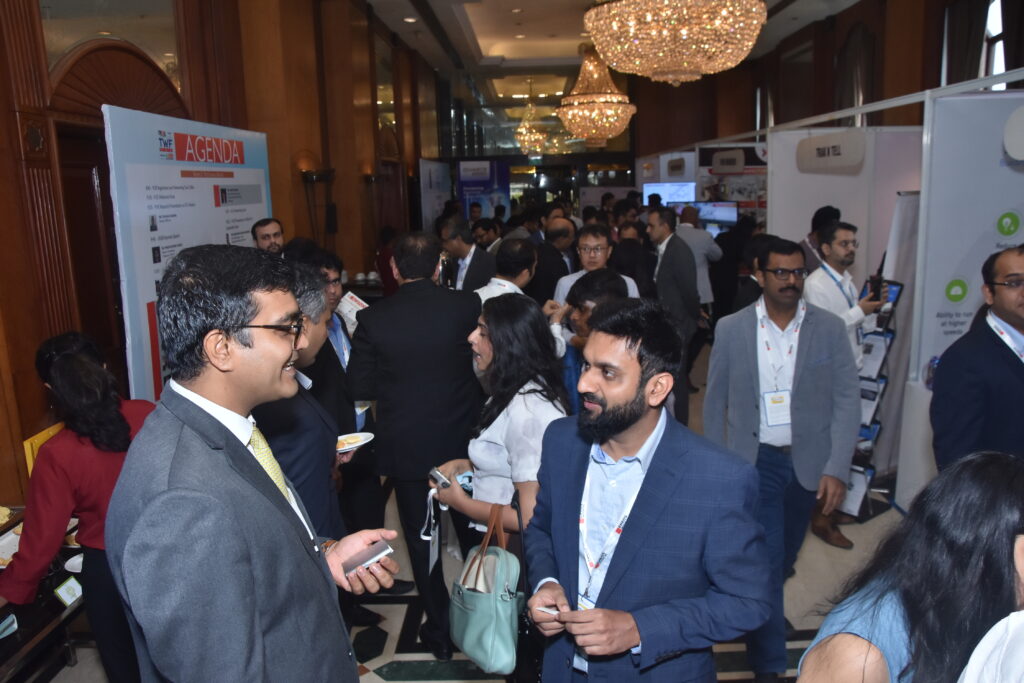
Despite the growth in sales of 2 and 3-W EVs in India, there has not been significant growth in the charging infrastructure. The crux is that the automobile industry is witnessing major technological transitions, with a shift from conventional powertrains to the electric powertrain. This transition will not only impact OEMs and their vendors within the auto industry but other stakeholders like oil producers, refineries, financiers, and others as well.
The forum was closed on a lighter note with the commencement of cocktails and the informal networking session and a promise to return bigger and better in 2023!
Rohit Dewan
Portfolio Director
+91 9811152332
rohit@threefold.in